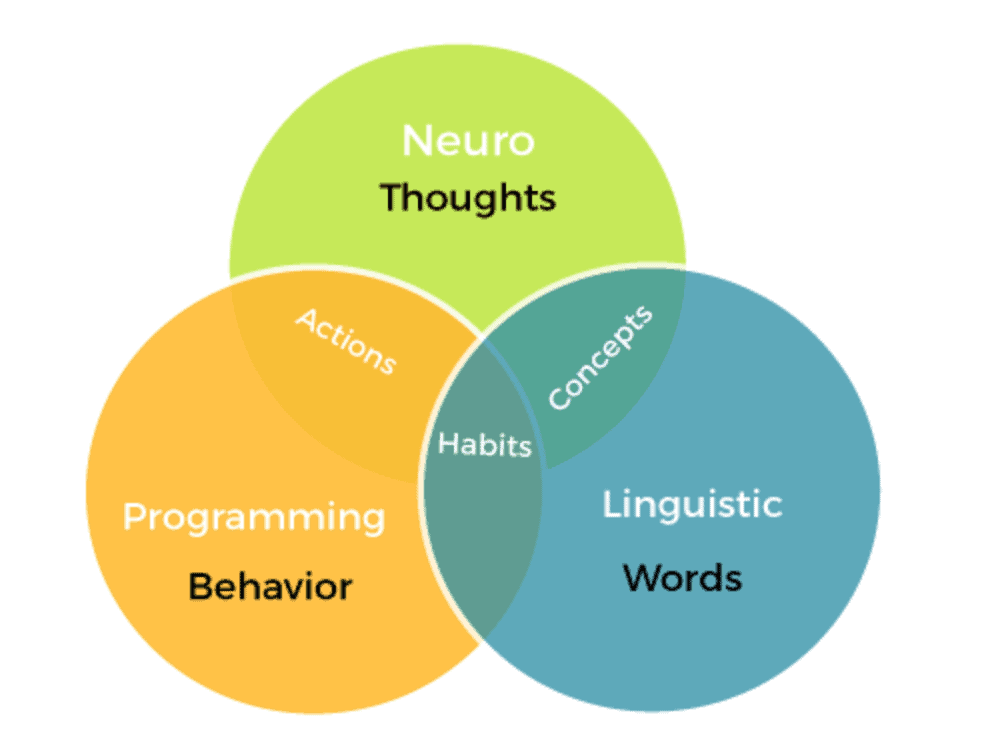Training in
NLP Neuro-Linguistic Programming is Essential

Neuro-Linguistic Programming (NLP) is an approach to communication, personal development, and psychotherapy developed in the 1970s by Richard Bandler and John Grinder. It posits a connection between neurological processes (“neuro”), language (“linguistic”), and behavioral patterns learned through experience (“programming”), aiming to modify these patterns to achieve specific goals
Core Concepts of
NLP Neuro-Linguist Programming Therapy
- Modeling Excellence: Neuro-Linguistic Programming posits that by studying and emulating the behaviors and thought patterns of successful individuals, one can replicate their success. This process, known as “modeling,” involves observing how experts perform tasks and adopting their strategies.
- Sensory Modalities: Neuro-Linguistic Programing emphasizes the importance of the five senses—visual, auditory, kinesthetic, olfactory, and gustatory—in processing experiences. Practitioners believe that individuals have preferred representational systems, and by identifying and aligning with these preferences, communication and understanding can be enhanced.
- The Map is Not the Territory: This principle suggests that individuals perceive the world through their subjective experiences, or “maps,” which may not accurately reflect reality. Neuro-Linguistic Programming encourages examining and adjusting these internal maps to facilitate personal change.
Common Techniques in Training of
NLP Neuro-Linguistic Programming Therapy
- Anchoring: Associating a specific stimulus (like a touch or word) with a particular emotional state, enabling the individual to access that state intentionally.
- Reframing: Changing the context or perspective of a situation to alter its meaning and emotional impact. For example, viewing a failure as a learning opportunity.
- Mirroring: Subtly mimicking another person’s body language or speech patterns to build rapport and foster a sense of connection.
- Future Pacing: Visualizing oneself successfully performing a desired behaviour in the future to increase the likelihood of it occurring.
Applications of NLP
Neuro-Linguistic Programming
Proponents of NLP Neuro Linguistic Programing claim it can be applied in various fields, including:
- Therapy: Addressing issues like Phobias, Depression, and Anxiety by modifying thought patterns and behaviors.
- Education: Enhancing Learning Strategies and Improving Communication between Teachers and Students.
- Business: Improving Leadership, Sales Techniques, and Interpersonal Communication within organizations.
- Personality Development: Increasing Self-Awareness, Emotional Intelligence, and Goal-Setting Capabilities.
